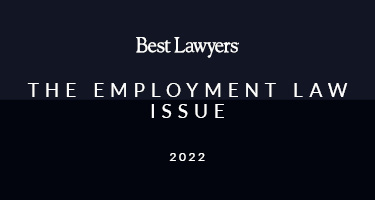Current Conditional Certification Standard
The Fair Labor Standards Act (FLSA) allows individuals to bring a collective action on behalf of other “similarly situated” individuals for claims of unpaid minimum wages or unpaid overtime. A collective action is different from a class action for two major reasons: (1) the statute of limitations continues to run after the action is filed; and (2) individuals must affirmatively opt-in to action by filing a consent. Similarly situated individuals typically learn of their right to opt-in through the receipt of court-ordered-notice. How and when a court may order such notice to be sent is up for decision in the Sixth Circuit this summer.
Until recent, Federal Courts throughout the country have followed a universal two-step process for certifying collective actions under FLSA. The first step, referred to as “conditional certification,” typically takes place at the beginning of the case and requires plaintiffs to make a “modest” showing that they are similarly situated to other potential class members. To secure conditional certification of their collective action, plaintiffs may rely on pleadings and supplementary materials such as declarations and other supporting documents. The standard is fairly lenient, and courts typically conditionally certify a representative class because the court has only minimal evidence before it. Conditional certification allows plaintiffs to send opt-in notices to other potential class members. As a result, the potential class members receive notice of their right to join the action fairly early on. It is this standard that will come before the Sixth Circuit.
The second step, referred to as “decertification stage” or “final certification,” occurs after discovery is complete. The evidentiary burden is much higher at the second stage because all discovery has been complete.
The Fifth Circuit Breaks Tradition in 2021
In early 2021, the U.S. Court of Appeals for the Fifth Circuit issued a landmark decision in Swales v. KLLM Transport Services, L.L.C. The Fifth Circuit rejected the two-step process that was originally adopted in 1987. The Swales Court found that “‘certification,’ much less ‘conditional certification,’ appears nowhere in FLSA.” As such, the Court determined it was not bound by the two-step process. According to Judge Willet, the two-step approach “frustrates, rather than facilitates, the notice process” because it distracts district courts from the ultimate issue—whether plaintiffs are similarly situated to potential class members. It reasoned that the lenient first step standard runs the risk of using notice as a case-management tool to using notice as a claims-solicitation tool. Now, district courts in the Fifth Circuit, must “rigorously scrutinize,” considering all the evidence, whether workers are “similarly situated.”
The Sixth Circuit Accepts Opportunity to Decide the Issue
In Holder v. A&L Home Care & Training Center, Home Health Aides filed a collective action in the Southern District of Ohio alleging that Defendant failed to pay overtime compensation. The District Court partially granted conditional certification under the two-step process. However, the District Court also asked the Sixth Circuit Court of Appeals to review the applicability of the two-step process in light of Swales. The Sixth Circuit accepted the opportunity to review the applicability of the two-step process.
What are the Implications for Employees?
- Less Recovery/Damages for Employees.
The FLSA has a two-year statute of limitations (three-years for willful violations). This means that a plaintiff can only recover unpaid overtime or other wages for the two years prior to filing or joining a lawsuit. If the Sixth Circuit decides a more rigorous standard is required, it will require the parties to engage in discovery before filing for certification. This will result in potential class members receiving notice of their right to join the action at a much later date. Some individuals who would have had claims for unpaid wages will lose their claims. Others will have the amount of damages available for recovery decline significantly due to the extra time it will take before receiving the opportunity to join the lawsuit.
- The Purpose of the FLSA will be Frustrated.
The FLSA is a broadly remedial and humanitarian statute designed to correct labor conditions detrimental to the maintenance of the minimum standard of living necessary for health, efficiency and general well-being of workers. The Sixth Circuit has recently stated that “[t]he provisions of the statute are ‘remedial and humanitarian in purpose,’ and ‘must not be interpreted or applied in a narrow, grudging manner.’" To interpret the statute as the Fifth Circuit did in Swales would be antagonistic to the remedial and humanitarian purpose of the statute.
- Availability of Representation May Decrease.
If the court were to adopt a method similar to Swales, fewer attorneys will be able to take on employee cases resulting from FLSA violations. This is for a multitude of reasons. 1) The cost of litigating such cases is high, especially for low-income plaintiffs who may not have substantial damages to cover the cost of litigation. By allowing for collective actions, plaintiffs are able to lower their individual costs by pooling their resources. Without conditional certification, individual plaintiffs are more likely to have to individually litigate their claims, which results in higher attorney and court fees. Many plaintiffs cannot afford to pay for representation in such cases unless it is on a contingency fee basis, and, as such, many attorneys cannot afford to take cases on an independent basis due to the limited damages of an individual, low-wage or salary employee.
Conclusion
Despite the ruling in Swales having occurred in January 2021, no other Court of Appeals has adopted the Fifth Circuit’s approach. Many Federal Courts have specifically declined to abandon the two-step procedure. Whether the Sixth Circuit uses this opportunity to formally endorse the two-step procedure or to adopt a more rigorous standard similar to Swales is yet to be seen. What is certain, however, is that employment lawyers are going to be following the proceedings closely.
Greg Mansell is the managing partner at Mansell Law, an employment law firm with offices in Columbus, OH and New York, NY. Mr. Mansell’s practice is primarily focused on collective and class action litigation for unpaid overtime and minimum wages.


















